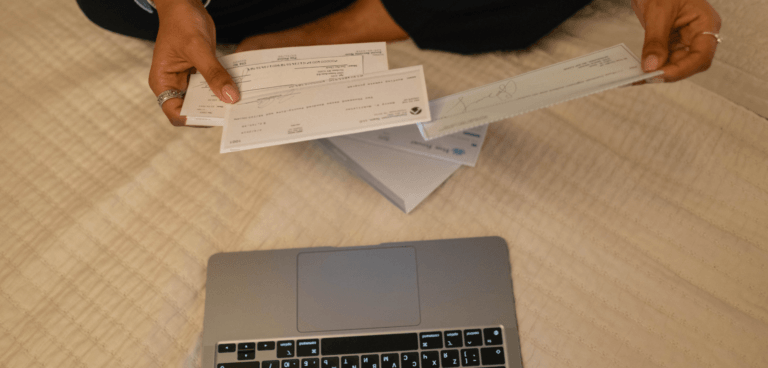
The ultimate financial trick – bouncing your final check.
Have you ever found yourself in a situation where you desperately need money, but your bank account is running low? It can be tempting to write a check, hoping that it won't clear until you have more cash in your account. But what happens if the check bounces? Not only is it embarrassing, but it can also be costly. Yet some people actually plan to bounce their last check.
While bouncing a check may seem like a quick fix, it can have serious consequences. Writing a check when you know you don't have enough funds in your account to cover it is known as check kiting. This is illegal, and you could face criminal charges if you're caught. Even if you're not charged, you'll still face hefty fees from your bank, as well as potential damage to your credit score.
So why do people still consider bouncing a check? For some, it's a last resort to buy more time when they know they're about to close their account. However, there are often better options available.
If you're struggling financially, consider seeking advice from a financial planner or credit counselor. They can help you come up with a plan to get back on track without resorting to risky moves like bouncing checks. Here are some alternative options to consider:
- Request an overdraft line of credit: Many banks offer overdraft lines of credit that can cover you if you accidentally overdraft your account. These can be less expensive than paying overdraft fees, but they often require a credit check and may come with an interest rate.
- Set up automatic transfers: If you have money in another account or savings account, set up automatic transfers to cover overdrafts. While this may not solve all of your financial problems, it can help prevent you from bouncing checks.
- Negotiate with creditors: If you're struggling to pay a bill, reach out to the company or person you owe money to and see if you can negotiate a payment plan or settlement. Many creditors are willing to work with you if you're honest and upfront about your situation.
- Sell unused items: Look around your home for items you no longer need or use and sell them online or at a garage sale. This can help you generate some extra cash to cover your bills.
- Cut back on expenses: Take a hard look at your budget and see if there are any expenses you can cut back on. Do you really need that monthly subscription service, or can you eat out less often? Making some small changes can add up and help you save some cash.
It's important to remember that bouncing a check should always be a last resort. While it may seem like an easy fix in the moment, it can have serious consequences that can haunt you for years to come. By being proactive and seeking out other solutions, you can avoid the embarrassment and expense of a bounced check and get back on track financially.
In addition to the alternative options above, there are other ways to improve your financial situation and avoid the need to bounce a check. Here are some additional tips:
- Create a budget: If you don't already have a budget, now is the time to create one. This will help you see where your money is going and identify areas where you can cut back. Be sure to include all of your expenses, including bills, groceries, and other regular expenses, as well as any debts you're paying off.
- Build an emergency fund: It's always a good idea to have some money set aside for emergencies. Aim to save at least three to six months' worth of living expenses in a separate account. This can help you avoid having to resort to desperate measures like bouncing checks.
- Track your spending: Keeping track of your spending can help you identify areas where you're overspending. You can use a budgeting app or simply keep a notebook to record your expenses each day. This can help you stay on track and avoid overspending.
- Increase your income: If you're struggling to make ends meet, consider finding ways to increase your income. This could mean taking on a second job, starting a side hustle, or asking for a raise at work. Even a small increase in income can help you avoid financial stress.
- Seek professional advice: If you're still struggling to manage your finances, consider seeking advice from a financial planner or credit counselor. They can help you come up with a personalized plan to improve your financial situation and avoid the need to bounce a check.
In summary, bouncing a check should always be a last resort. While it may seem like a quick fix at the moment, it can have serious consequences and should be avoided if possible. Instead, consider seeking out alternative options and taking proactive steps to improve your financial situation. By doing so, you can avoid the embarrassment and expense of a bounced check and get back on track financially.